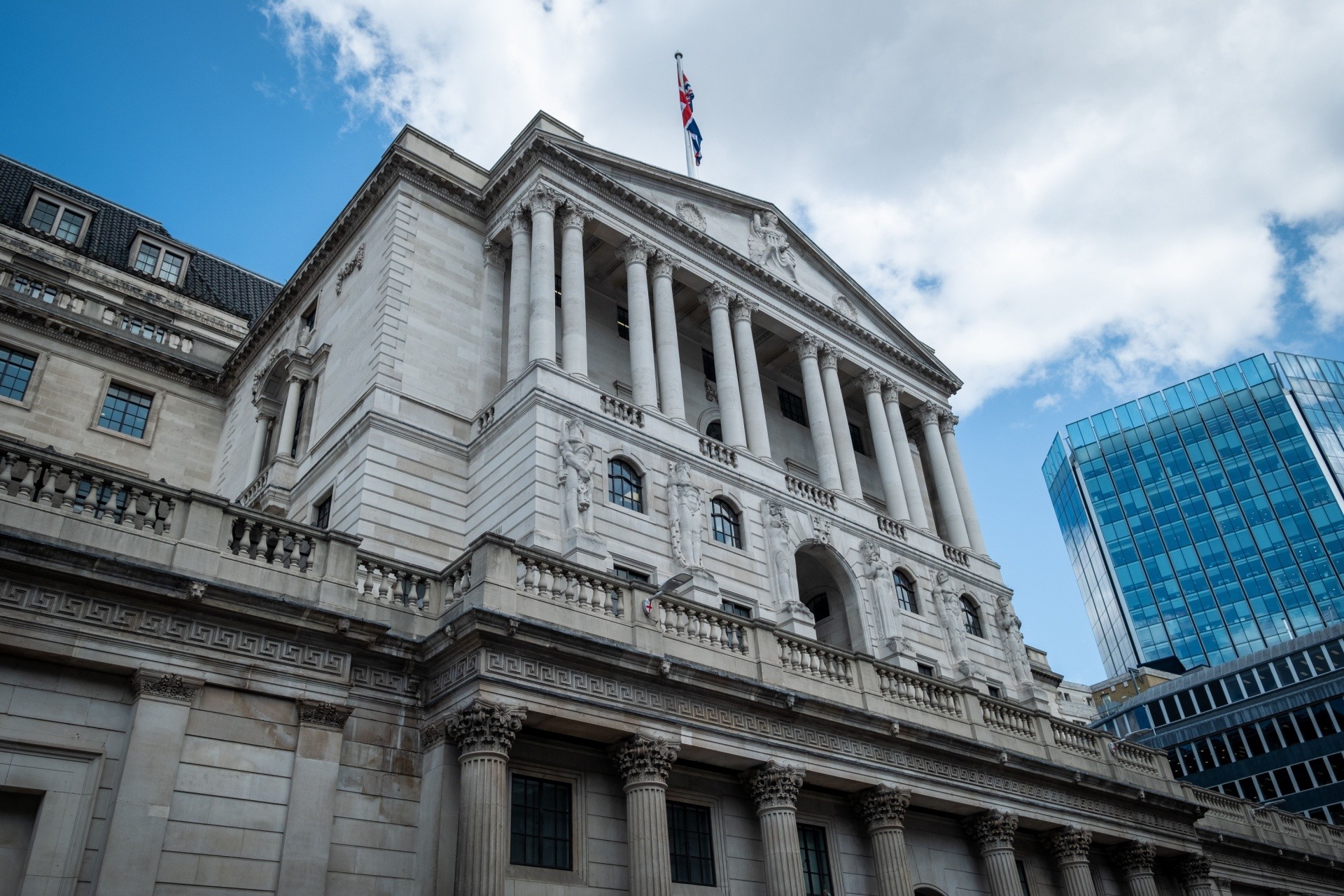Weekly Briefing: UK Property Market Appeal, AI Adoption Trends, Spain’s Foreign Investment Crackdown & UK Inflation Data
In this week’s briefing, we explore the UK’s enduring appeal as a top destination for international property investment and highlight the factors driving global interest in its growing market. We also examine UK businesses' rising adoption of artificial intelligence as they navigate increasing employment costs and seek to enhance productivity.
Beyond the UK, we turn our attention to Spain’s bold proposals to curb foreign property purchases and contrast them with the UK’s more investor-friendly policies, before finally reviewing December’s inflation figures, which signal a potential shift in the Bank of England’s monetary strategy, with further rate cuts on the horizon.
Read on for insights into how these key developments are shaping both domestic and international markets.
UK Property
UK property market continues to attract foreign property investment
- The UK’s stable and transparent property market has continued to attack more and more foreign investors over the last year with a notable amount more investing in the north of England. With a robust legal framework, documented land ownership, and predictable processes, buyers can navigate the market with ease, supported by government policies that encourage overseas investment.
- Regional cities such as Manchester, Birmingham, and Edinburgh are also rising in prominence, driven by expanding economies and rental demand from thriving student and professional populations.
- These urban centres benefit from a long-term trend of consistent property price growth across the UK. Chronic housing shortages, especially in major cities, ensure that demand outpaces supply, driving values upward and presenting compelling opportunities for capital appreciation.
- Beyond rising property values, the UK’s rental market offers an immediate revenue stream. High demand for rental properties, especially in urban hotspots, allows investors to generate reliable income, offsetting mortgage costs and enhancing overall returns.
- The weaker pound amplifies these advantages, particularly for buyers from countries like the US, who benefit from increased purchasing power. This currency edge not only makes high-value properties more accessible but can also boost returns when profits are repatriated.
- Together, these factor make it clear why we’ve seen a vast amount of foreign property investment. The UK’s property market stability and enduring appeal ensure it remains a top choice for those seeking a reliable, profitable market, even amidst global uncertainties.
UK Economy
UK businesses plan to invest in AI instead of hiring staff
- A growing number of UK businesses are shifting focus from hiring to artificial intelligence investment, driven largely by increased employer costs. A survey by Boston Consulting Group found that 51% of business leaders plan to redirect funds from staff to AI tools following the rise in employers’ national insurance contributions announced in the October Budget.
- The impact of higher employment costs is compounded by planned workers' rights reforms, with 57% of surveyed executives indicating they expect to reduce hiring in 2025. This shift reflects a broader trend, as businesses look to mitigate rising costs while capitalising on AI’s potential to boost productivity.
- Many companies are already implementing workforce reductions tied to digitisation. BT’s plan to cut up to 55,000 jobs, including 10,000 directly linked to automation, highlights the scale of this shift.
- Business leaders see AI as a transformative tool amid escalating employment costs. According to BCG’s Nick South, generative AI’s ability to enhance productivity is prompting organisations to reshape their workforces, accelerating the adoption of automation across industries.
- While some executives express concern about AI accelerating job losses, others believe its impact will be more nuanced. James Corcoran from Sanderson’s government and defence practice suggested that AI will balance itself out, replacing some jobs, supporting others, and creating entirely new opportunities.
Global Property
Spain to impose up to 100% tax on real estate to foreign investors
- While the UK continues to attract foreign property investment, Spain appears to be taking the opposite approach, proposing measures aimed at curbing purchases by non-EU residents. Prime Minister Pedro Sánchez has unveiled plans for a tax of up to 100% on real estate bought by non-EU citizens, including those from the UK, as part of a broader initiative to address Spain’s housing crisis.
- Sánchez highlighted the dramatic rise in housing costs across Europe, with prices increasing 48% over the past decade, far outpacing incomes, a similar issue we face in the UK.
- The tax proposal specifically targets non-EU buyers who are perceived as purchasing homes for speculation rather than residence. In 2023 alone, such buyers acquired around 27,000 properties in Spain, often in high-demand areas like Ibiza and Marbella, fueling resentment amid Spain’s housing shortage.
- Additional measures announced include expanding Spain’s limited social housing supply, incentivising the renovation and affordable rental of empty properties, and cracking down on tourist flats. The latter are often blamed for pricing locals out of the market, with new regulations and higher taxes planned to level the playing field with hotels.
- Critics argue that the proposed tax may be more about creating “uncertainty and noise” to deter foreign investors than an actionable policy, given the government’s history of struggling to pass legislation.
- For high-net-worth UK-based individuals accustomed to buying properties abroad, such measures may prompt a reconsideration of their investment strategies. As Spain tightens its policies, the UK’s transparent and stable market, along with its appeal to overseas investors, continues to stand in contrast.
UK Economy
UK inflation falls in December, but caution should remain
- UK inflation eased in December, with the Consumer Price Index (CPI) rising by 2.5% year-on-year, down from 2.6% in November and below forecasts of 2.7%. This decline, attributed to slower price rises in restaurant food, clothing, and hotel stays, offers relief to the government and financial markets.
- Core inflation, which excludes volatile elements like food and energy, also fell, coming in at 3.2% compared to 3.5% in November. These figures support expectations that inflation is moving closer to the Bank of England’s (BoE) 2%, target despite the recent rise.
- The latest data provides some reassurance during a turbulent period for Chancellor Rachel Reeves, marked by rising gilt yields and a weakening pound. Following the inflation report, UK government bond yields dipped across all maturities.
- Analysts believe the easing inflation figures strengthen the likelihood of an interest rate cut by the BoE at its February meeting. A 25 basis point reduction, from 4.75% to 4.5%, is widely anticipated, building on cuts made in August and November 2024.
- Despite the decline, concerns linger over inflation’s trajectory, with predictions that CPI could rise again to 2.75% in the second half of 2025. Analysts like Zara Nokes caution that inflationary pressures remain, driven by unfavourable base effects and recent government policy changes.
- “Headline inflation will be dominated by energy base effects for now, but today’s decline in services shows underlying inflation is also finally declining,” said Tomasz Wieladek, chief European economist at T. Rowe Price. He added that this gives the BoE a "clear green light for another series of cuts," potentially beyond the one or two priced in by markets.
- While the recent dip in inflation is a positive signal, underlying pressures persist. As analysts have pointed out, inflationary challenges are likely to intensify in the coming months as businesses face tough decisions in the wake of Labour's polarising budget.
Final Note
This week’s updates reflect the evolving dynamics in the UK’s investment landscape, from the continued appeal of the property market to the growing prominence of AI adoption in business operations.
While the UK remains a stable and attractive destination for foreign investment, particularly in real estate, global shifts in AI technology and policy changes in Europe signal that new challenges are on the horizon.
The recent easing of inflation provides a glimmer of hope for the Bank of England's anticipated interest rate cuts, with potential economic benefits in the form of increased purchasing power and enhanced investment opportunities. However, as cautioned by market analysts, inflationary pressures are far from over, requiring a careful approach to policy decisions.
As we move into 2025, the UK’s ability to remain competitive on the global stage will depend on how effectively it navigates these economic shifts—balancing growth opportunities across both traditional and emerging sectors, while addressing underlying challenges. The government and BoE certainly face a significant task ahead if they hope to drive growth and resolve these pressing issues.
%20(3)%20(2).jpg)








